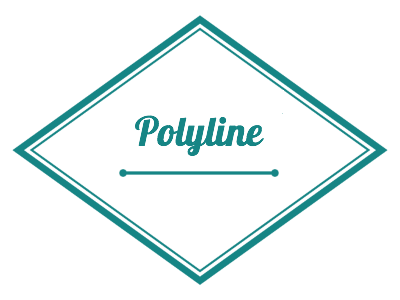Polyline encoder / decoder in Swift
Features
- Encode a
CLLocationCoordinate2Darray to a polyline - Decode a polyline to an array of
CLLocationCoordinate2D - Encode a
CLLocationarray to a polyline - Decode a polyline to an array of
CLLocation - Encode/Decode associated levels (optional)
- 100% Unit Test Coverage
- Complete Documentation
- Continuous integration with Travis CI
- CocoaPod available
- Convert to
MKPolyline
Planned for future releases
- Convert to
GMSPolyline - Example project
- Filter locations available at a specific level
Planned when support is available :
- Code Coverage with Coveralls
Requirements
- Xcode 8+
- iOS 8.0+ / Mac OS X 10.10+ / tvOS 9.0+ / watchOS 2.0+
- Swift 3.0
Note: The last version to support Swift 2.3 is the 3.x series. 4.0 will only support Swift 3.x.
Integration
To use this library in your project you can use CocoaPods, Carthage, and/or integrate it manually :
CocoaPods
You can integrate Polyline in your Podfile like this:
pod 'Polyline', '~> 4.0'
Carthage
You can integrate Polyline in your Cartfile like this:
github "raphaelmor/Polyline" ~> 4.0
Manual
- Drag Polyline.swift inside your project tree.
- For Workspaces you may include the whole Polyline.xcodeproj
Usage
Polyline Encoding
Using [CLLocationCoordinate2D] (recommended) :
let coordinates = [CLLocationCoordinate2D(latitude: 40.2349727, longitude: -3.7707443),
CLLocationCoordinate2D(latitude: 44.3377999, longitude: 1.2112933)]
let polyline = Polyline(coordinates: coordinates)
let encodedPolyline: String = polyline.encodedPolyline
// Or for a functional approach :
let encodedPolyline: String = encodeCoordinates(coordinates)Using [CLLocation] :
let locations = [CLLocation(latitude: 40.2349727, longitude: -3.7707443),
CLLocation(latitude: 44.3377999, longitude: 1.2112933)]
let polyline = Polyline(locations: locations)
let encodedPolyline: String = polyline.encodedPolyline
// Or for a functional approach :
let encodedPolyline: String = encodeLocations(locations)You can encode levels too :
let levels: [UInt32] = [0,1,2,255]
let polyline = Polyline(coordinates: coordinates, levels: levels)
let encodedLevels: String? = polyline.encodedLevels
// Or for a functional approach :
let encodedLevels: String = encodedLevels(levels)Polyline Decoding
You can decode to [CLLocationCoordinate2D] (recommended) :
let polyline = Polyline(encodedPolyline: "qkqtFbn_Vui`Xu`l]")
let decodedCoordinates: [CLLocationCoordinate2D]? = polyline.coordinates
// Or for a functional approach :
let coordinates: [CLLocationCoordinate2D]? = decodePolyline("qkqtFbn_Vui`Xu`l]")You can also decode to [CLLocation] :
let polyline = Polyline(encodedPolyline: "qkqtFbn_Vui`Xu`l]")
let decodedLocations: [CLLocation]? = polyline.locations
// Or for a functional approach :
let locations: [CLLocation]? = decodePolyline("qkqtFbn_Vui`Xu`l]")You can decode levels too :
let polyline = Polyline(encodedPolyline: "qkqtFbn_Vui`Xu`l]", encodedLevels: "BA")
let decodedLevels: [UInt32]? = polyline.levels
// Or for a functional approach :
let levels: [UInt32]? = decodeLevels("BA")Polyline Precision
Default precision is 1e5 : 0.12345 (5 digit precision used by Google), but you can specify your own precision in all API methods (and functions).
// OSRM uses a 6 digit precision
let polyline = Polyline(encodedPolyline: "ak{hRak{hR", precision: 1e6)Notes
This library tries to have consistent results with polylines generated by the Google Maps iOS SDK. The online tool for encoding polylines has some minor inconsistencies regarding rounding (for example, 0.000015 is rounded to 0.00002 for latitudes, but 0.00001 for longitudes).
This codes tries to adhere to the GitHub Swift Style Guide
Contributors
- Raphaël Mor (@raphaelmor): Creator
- Tom Taylor: Maintainer
- Minh Nguyễn: Maintainer
License
Polyline is released under an MIT license. See LICENSE.txt for more information.



